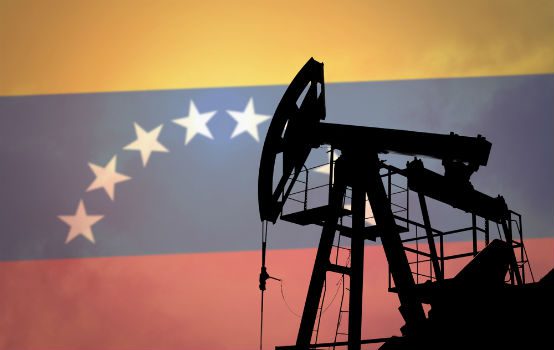Our Economic War Exacerbates Venezuela’s Suffering

The Trump administration plans to intensify the cruel economic war on Venezuela in the new year:
Senior Trump administration officials discussed plans to “increase pressure” over the coming year on Venezuela’s embattled ruler, Nicolás Maduro, with top opposition leaders at the State Department this week, Colombian and Venezuelan opposition officials confirmed to McClatchy and el Nuevo Herald.
The State Department hosted four of Venezuela’s largest opposition parties, starting with one-on-one sessions that began earlier this week before all the parties gathered together on Wednesday.
One source said the administration plans to “pour more coal into the fire” with stronger, more complex sanctions that will further isolate Maduro from an axis of nations supporting him.
The administration’s coercive policies all suffer from the same flaws. First, Trump sets unrealistic goals. Then he resorts to economic warfare in a vain effort to compel the other side’s capitulation. When the economic war predictably fails to achieve its goals, he just escalates the economic war on the misguided assumption that strangling the population will somehow hurt the government instead. As they prepare to “pour more coal into the fire,” they should first consider who it is that will be consumed by the fire. Piling on more U.S. sanctions has not hastened Maduro’s downfall, and over the last eleven months we have seen the Venezuelan government adapt to those sanctions in order to survive. The main thing that Venezuela sanctions will achieve is to make it more difficult for ordinary people to obtain food and medicine. Economic coercion cannot force the outcome that the Trump administration seeks because the stakes for Maduro and his allies are so great. All that the U.S. manages to do with its current policy is to deepen the country’s agony. Inflicting more punishment on a population that has already suffered greatly isn’t going to bring about the desired political change that Washington seeks, but it will injure and even kill innocent people in the attempt.
The U.S. ought to be encouraging a negotiated settlement that clears the way for new and fair elections, but the longer that it persists with its pressure-only campaign the more of an incentive it gives opposition leaders to hold out and refuse compromise. The Trump administration is sticking with purely destructive economic warfare because it never expected to be in this position. The president mistakenly believed the promises of hawkish Republicans and the Venezuelan opposition that this would be a quick win. Almost a year later, he is still blundering ahead with a policy that has already failed.
Meanwhile, the humanitarian crisis in the country grows steadily worse:
The report finds Venezuela’s economy has contracted by 25.5 percent this year, amounting to a cumulative loss in gross domestic product of 62.2 percent since 2013. It says hyperinflation makes food, medicine and other basic commodities unaffordable. Lack of money and critical supplies, it notes, are causing rising levels of acute malnutrition and nutritional deficiency among children and women.
Reuters reports on the spreading malnutrition among Venezuelan children:
Caritas, in a recent study conducted in five Venezuelan states and the capital, Caracas, found that 16% of children under the age of five suffer from acute malnutrition and that nearly twice as many suffer from low growth rates for their age.
U.S. sanctions alone did not create these conditions, but they do make them worse every day. The U.N. High Commissioner for Human Rights Michele Bachelet has acknowledged that “recent U.S. sanctions continue to negatively impact Venezuela’s economy and public services at all levels.”
Francisco Rodriguez proposed a practical way to address the humanitarian crisis earlier this month, and it is the sort of thing that our government should be supporting:
Therefore, more than an oil-for-food program, Venezuela needs a humanitarian oil agreement: an accord that protects vulnerable Venezuelans from the consequences of the country’s political conflict.
It is crucial that the essential imports that are paid for through the program be distributed through a depoliticized mechanism that does not play into the hands of the Maduro regime. For years, Maduro has used control over food distribution to gain political leverage, threatening those who don’t attend government rallies or turn out to vote with losing the subsidized food that is often their primary source of sustenance. A well-designed humanitarian oil agreement should ensure that access to food acquired through the program is not subject to any type of political conditioning.
When confronted with the worst humanitarian crisis in our hemisphere, our government’s main response has been to take actions that are guaranteed to worsen it. The agreement that Rodriguez describes is a sane alternative to the reckless policy of “maximum pressure.” If our government were genuinely interested in making conditions better for the people of Venezuela, they would abandon the economic war. Because they are more concerned with toppling a government, they intend to escalate it and drive more people towards starvation.